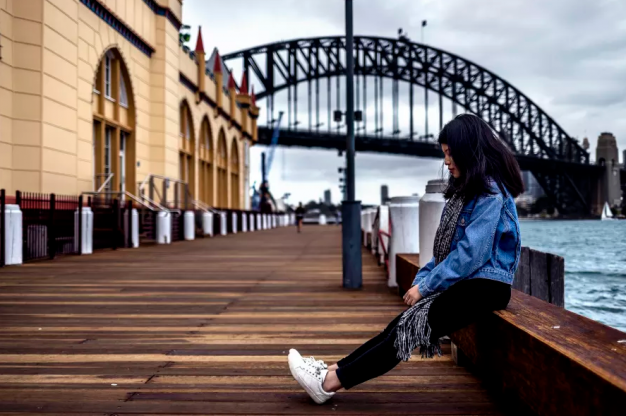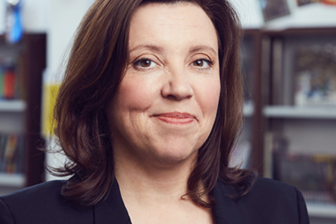
Young people in Australia are mapping viable futures
Young people globally are facing unprecedented social, economic, political and environmental challenges related to the restructuring of work, poor access to key welfare services, the decline of democratic practices and the climate emergency.
In Australia, rising numbers of young people are engaging in ‘side hustles’ to make ends meet, highlighting how young people are actively and creatively responding to these pressures.
They are often doing so with particular reference to the question of what constitutes a viable life. It’s a stripped-back approach to life that focuses on central issues of survivability.
Across large parts of the world – and in very different contexts – young people are ‘thinking in’ to engage closely with core domains of life – food, water, education, health, work, infrastructure, environment and security.
The anthropologist Professor Ghassan Hage has argued that viability is a useful concept because it not only implies survival, but also suggests an encompassing approach to social questions. It’s about how different domains of life fit together.
This is important because research on young people’s social and political action globally, including our own work, shows that they are commonly ‘thinking across’ life domains.
Given the multifaceted and complex problems the world faces, we urgently need to better understand young people’s efforts to develop viable futures.
Young people’s action is distinctive and may provide valuable new knowledge, strategies, perspectives and discourses for governments, non-government organisations and the public.
This point that emerges also in our own research, which has focused in part on student food insecurity in Australia.
Up to 40 per cent of students at Australian universities are food insecure.
COVID-19 exacerbated this problem and meant that many students have had to concentrate closely on the basic question of how to obtain access to sufficient and nutritious food.
Survival is also a theme at the heart of the research we have been doing for two decades with young people in rural north India, where rising prices, job insecurity and climate change are threatening livelihoods.
Young people in the village where we work have incorporated the language of survival into their everyday language.
In our work with students experiencing food insecurity in Victorian universities, students talked repeatedly about how focusing on access to food also meant thinking about other core domains of life – their health, housing, work, transport and study.
The theme of ‘thinking across’ is equally strong in our research in rural north India.
The young people of the Indian Himalayas are adamant that they must concentrate not only on key areas of life, but also on how these areas of life are connected. They want to interrogate how education connects to health and infrastructure, for example, or how the environment is connected to security and food.
These young people, in turn, apply this ‘thinking across’ to create new ecosystems of practice that tie together food, water, environment, infrastructure, health, political recognition, and security in practical systems of action.
In our food insecurity work, this was evident through the development of new forms of mutual aid, where students swapped recipes and information about free food online.
In north India, it’s evident in young people developing their own NGO that connects their concerns about work, education, agriculture and infrastructure.
A third dimension of young people’s practices globally that connects with the concept of viability is the extent to which they involve ‘thinking out’ and reflecting on key ethical questions, especially ideas of community and the environment.
In discussing the idea of viability, Hage argues that the tendency for marginalised people to concentrate on survival is also typically associated with them reflecting on wider ethical issues. He notes people’s concern with sociality and environmental sustainability, in particular.
 Young people are viewing the different parts of their life as interconnected, including the ethical dimensions. Picture: Getty Images
Young people are viewing the different parts of their life as interconnected, including the ethical dimensions. Picture: Getty Images
Reflecting this idea, young people in numerous contexts are concerned not only with how to live a good life in the sense of prosperity, but also a good life in the more moral sense.
It was this concern with morality that underpinned the efforts of food insecure students in Victoria to develop forms of mutual aid during COVID-19 and also informed the community service of the young people in north India.
In reflecting on survival, and “acting across” to build ecosystems of practice that sustain community and the environment, young people are also often trying to replace or critique dominant practices – they are “thinking against”.
For example, some young people in Victoria see their mutual aid networks as alternative to the dominant capitalist system of food provision.
Likewise, some young people in rural north India see their community service as a better alternative to relying on a sometimes corrupt and inefficient set of local government organisations.
Too often we hear grand narratives in which marginalised people, including young people, are imagined as simple pawns in wider structural change. Terms like ‘resilience’ and ‘adaptation’ encapsulate this passivity, but what we are seeing across the world right now is more active.
Young people are leading new experiments in living – new viabilities – that sometimes challenge and reimagine older ways of life. It’s important that we start listening and learning from them.
Associate Professor Jane Dyson, Professor Craig Jeffrey, Professor Ghassan Hage and Story Producer: Andrew Trounson
In 2020 and 2021, a team of researchers and students investigated the lived experience of food insecurity among university students, and produce the short animated film, Student Hunger: A Silent Crisis. The research was funded by US Social Research Council, the University of Melbourne and the Melbourne Social Equity Institute.
This article was first published on Pursuit, University of Melbourne. Read the original article.




